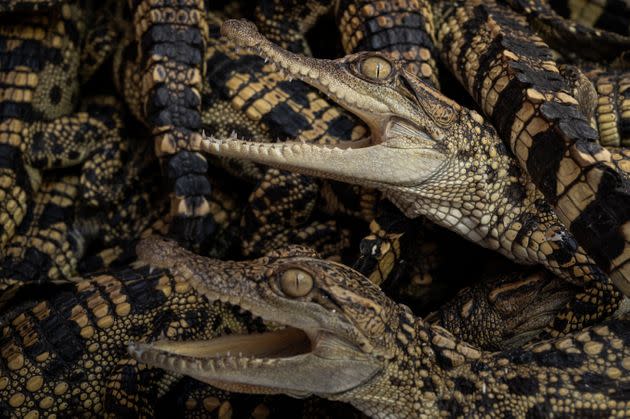Sorry, What? Scientists Found A Crocodile Who Had A Virgin Birth

Scientists have reported that a female crocodile miraculously proved she really doesn’t need any males in her life – and made a baby all on her own.
Yes, according to a paper published in Biology Letters on Wednesday, her baby crocodile was the product of a virgin birth, also known parthenogenesis.
That means it only has genetic material from its mother, with no father.
This is by no means a first for the animal kingdom; it’s been spotted in fish, snakes and even, rarely, in some birds.
However, this is a big deal because crocodiles have never been known to lay eggs which develop into actual animals until now – and it could be happening without anyone realising, right under our noses.
The croc in question had lived alone her entire life in a Costa Rican zoo when she gave birth to eggs in January 2018.
It is possible for crocodiles to lay sterile eggs, but when researchers examined her batch of eggs, they looked like they had actually developed, so scientists put them in an incubator. None of them hatched – but one did mature.
Sadly it didn’t make it – but the animal was perfectly formed, and had chromosomes which were 99.9% identical to its mother’s.
Parthenogenesis works when an egg cell matures in the mother, and then divides over and over to create a product with half the genes needed for a newborn.
During this process, smaller cellular sacs with chromosomes are produced as byproducts – they normally wither away.
However, in vertebrates, they can make these sacs fuse with the egg, slightly mixing up the mother’s DNA to create to a new whole individual.
Pretty cool, right?
And, the scientists said this could even happen “in the presence of potential mates”.

Baby crocodiles pictured in Thailand
As crocodiles are known to be related to dinosaurs, there’s a chance those ancient creatures were adept at this reproductive business, too.
Associate professor at Virginia Tech, Warren Booth, studied the eggs in question and told the New York Times: “What this tells us is it’s very likely that this also happened in pterosaurs and dinosaurs.”
This is going to be hard for the scientific community to prove for now though, because fossils do not allow DNA to be retrieved – Dr Booth said “we’ll never be able to prove they could do it”.
However, he suggested that they may have had the ability, and “it’s much more widespread than people think.”
These animals are less healthy than others which come from two different sets of DNA, but scientists speculate they help species survive if there’s no mate.
Or, it just be trait which has not been cut out by evolution – and Dr Booth suggested it might just be a gene which can be switched on or off.

 Yahoo Sport
Yahoo Sport 





































